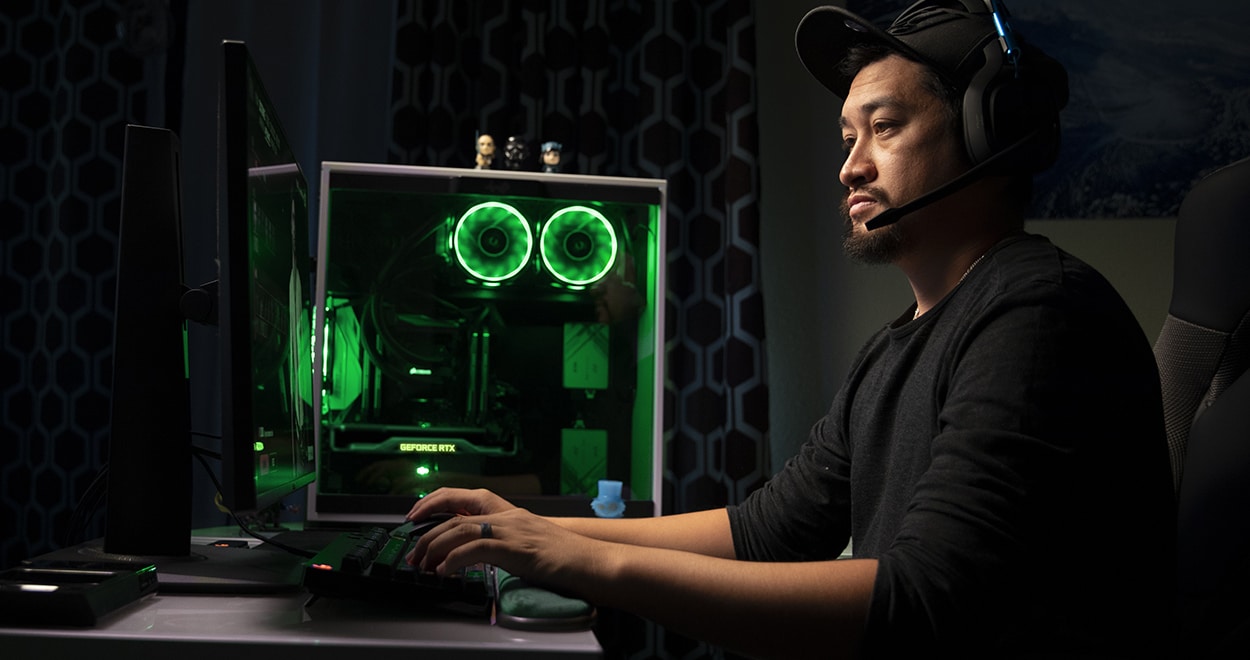PlayerUnknown’s Battlegrounds. Fortnite. Call of Duty: Black Ops 4 – Blackout. Apex Legends.
If you’re a gamer, you spend some of your best moments immersed in these worlds. If you’re not, you may not see the common denominator: they’re a new breed of games known as a battle royale.
These games take all the qualities driving the growth of PC gaming and hypercharge them: the competitive aspect of esports; low price points with optional in-game purchases; and the popularity of streaming sites, such as Twitch and YouTube, that expose larger audiences to gaming. Apex Legends, benefiting from all these factors, reached 50 million players in a single month.
And just as new great games have always driven demand for great GPUs, today’s battle royale titles drive demand for GPUs from gamers looking for a competitive edge. In an article on GeForce.com, Gerardo Delgado detailed how big — surprisingly big — that edge can be.
If you love battle royale gaming, you need to see these stats on how a great GPU can help you perform at your peak.
The key attraction for these experiences is people as much as it is pixels. These games are about adrenaline, survival and the thrill of eliminating rivals at any moment as you try to be the last person standing.
These are real individuals you’re competing with to get there. And that makes gamers more likely to bring in their friends to help. The more people play these games, the more people who know those already playing will want to join in.
So What Is Battle Royale?
These games take a very old idea — the idea of a LAN party, where gamers would meet and physically connect their PCs to one another for frantic digital shootouts — and up the intensity.
Gamers jump into a digital battlefield — either alone or as part of a squad. They then search frantically for weapons and other gear. All the while the play area shrinks, and they’re crammed into an ever tighter space as survivors fight it out in ever more intense battles. It’s all the fun of The Hunger Games, without the weepy melodrama.
The stakes are virtual, but the opponents are real, so winning even a minor skirmish feels great. That’s why gamers scramble for even the smallest advantages: whether it’s their favorite gun or a more defensible position in a shifting online battlefield.
How GPUs Help Gamers Play Better
Optimizing your gear can allow you to perform at your highest level. NVIDIA GPUs are built for fast gameplay: professional esports gamers who battle for multimillion-dollar stakes in front of tens of thousands of fans rely on them.
That’s because they improve reaction time — they lower latency, the time it takes for an image to be displayed on a screen; and improve your aim — the action looks smoother. And together with NVIDIA G-SYNC monitors, they remove distracting effects, such as tearing and stuttering.
Love Battle Royale? You need to see these stats on how a great GPU can help you perform at your peak.
But how much do they really help? We found that the latency of a system with one of the NVIDIA GeForce RTX graphics cards is halved compared to a GeForce GTX 750 Ti, and nearly 6x less than a system without one.
The real news for gamers: a better graphics card that can reach higher frame rates can help you reach your full potential in battle royale games.
If you’re a gamer, you’re going to want to dig into this data on GeForce.com, whether you’re playing Apex Legends, Call of Duty: Black Ops 4 – Blackout, Fortnite or PlayerUnknown’s Battlegrounds.
If you’re not, here’s the takeaway: 144 is the new 60 for competitive gaming. Battle royales and competitive games have upped the bar for gamers, who now seek to play at a higher rate of frames per second with high refresh monitors.
